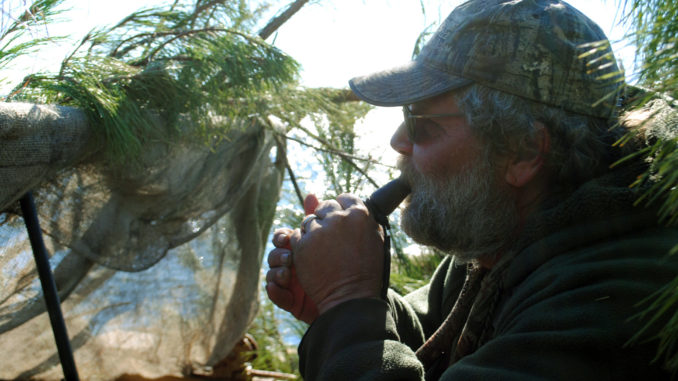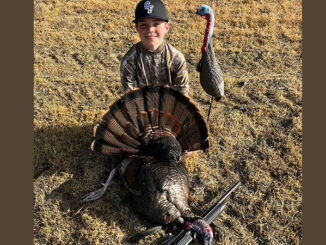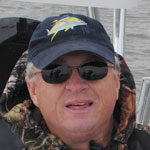
Diving ducks do not decoy as readily or gracefully as puddle ducks, but they will respond to calling.
Guide Carlton Thornton said he likes to call very loudly to distant birds, but once ducks start to pay attention to his calls and decoys, he gets awfully quiet.
“My general rule is, if they’re coming, don’t call,” he said. “If they’re going past, call. Maybe one time in eight you can turn a flock like that, but it’s worth it to try. The closer they are, the lighter you call. If they’re circling, you can go with a feeding chuckle.”
Thornton said the traditional mallard “high ball” doesn’t work nearly as well on diving ducks as it does on puddlers, but he will stick with a mallard call and basic sounds.
“Gadwalls and shovellers will respond to mallard calls, and bluebills really react to mallard calls — so do redheads,” Thornton said. “Sea ducks could give a rat’s but about calls. Buffleheads won’t decoy; they’ll just shadow the outside of the decoys.
“I like wooden calls, especially on windy days, because you can hear them better,” he said. “You can get pintails and widgeon to decoy to wood duck whistles on call days, but on windy days, they can’t hear it.”



Be the first to comment